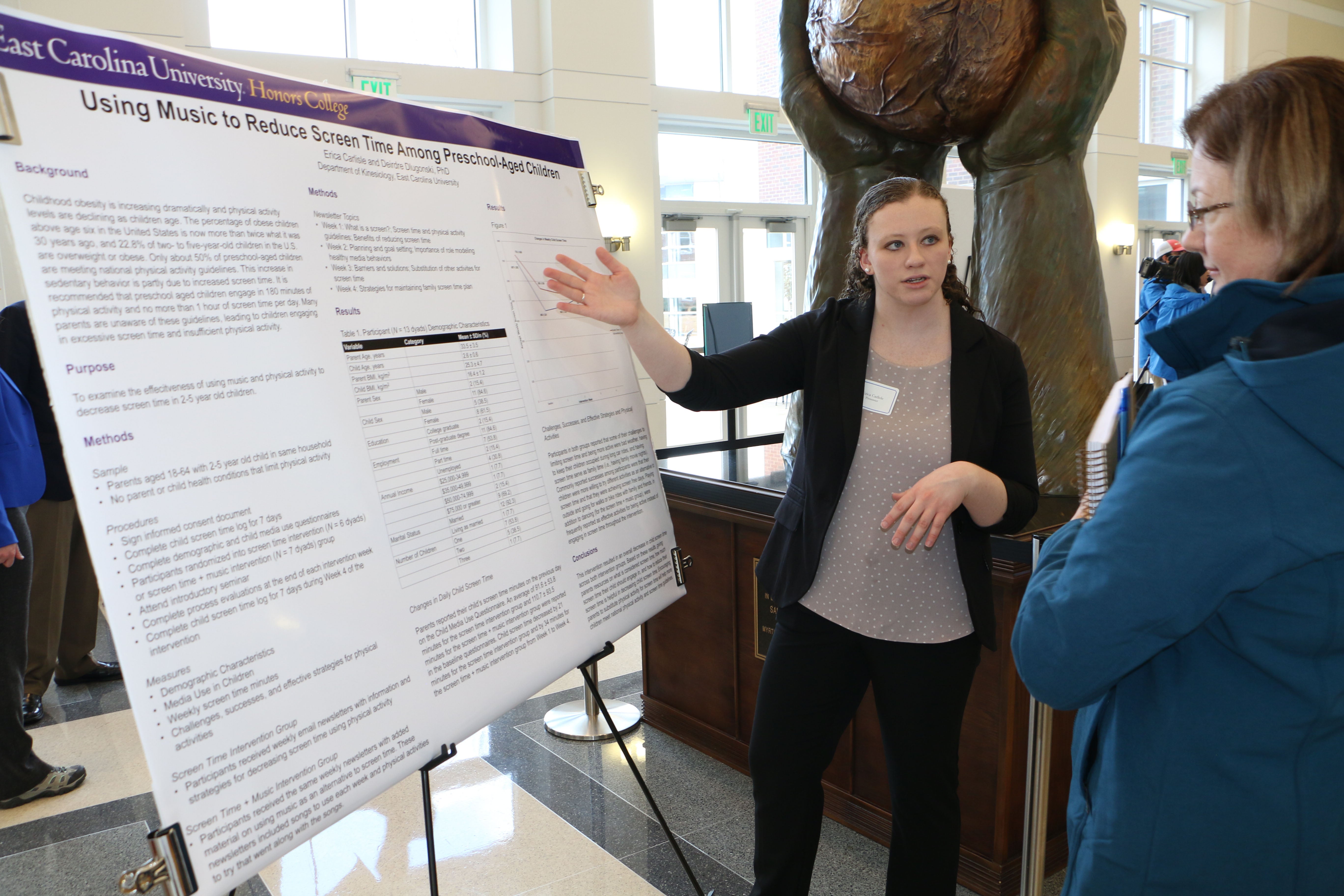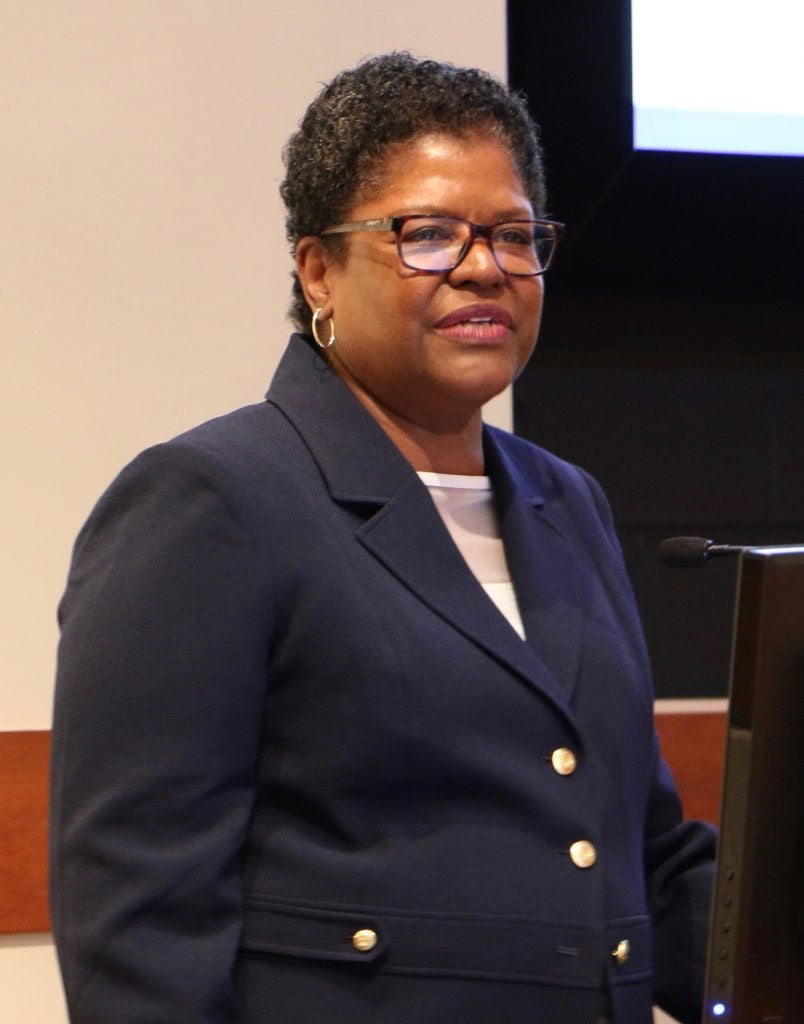Social determinants of obesity, diabetes addressed at ECU symposium
Does where you live or your level of education make you more prone to obesity and diabetes?
These and other social determinants of obesity and diabetes, which are disproportionally affecting eastern North Carolina, were addressed during the 14th annual Jean Mills Health Symposium at the East Carolina Heart Institute at ECU on Friday.

ECU senior kinesiology student Mackenzie Brown discusses her project during the 14th annual Jean Mills Health Symposium at ECU on Feb. 2. (Photos by Rob Spahr)
During the event, local, regional and national experts in obesity and diabetes, as well as community leaders and ECU faculty, staff and students, were challenged to address the social causes of the diseases.
The social factors discussed included cultural beliefs, gender roles, access to health care and patient-provider communications, economic stability, community infrastructure, educational attainment and role models.

Dr. Leandris Liburd, associate director for the Office of Minority Health and Health Equity at the Centers for Disease Control and Prevention, speaks during the symposium.
This year’s featured speaker was Dr. Leandris Liburd, associate director for the Office of Minority Health and Health Equity at the Centers for Disease Control and Prevention (CDC). Liburd is an expert on the social determinants of health and has been successful in identifying intervention strategies to reduce racial and ethnic health disparities.
“Our health is our greatest resource, it affects everything. … (But) it’s something that I think we typically take for granted until we don’t have it anymore. And then we get up and say ‘OK, now I need to pay attention,’” Liburd said. “In public health, we try to get to people in the front end of that. And while we can’t prevent everything, there are things that we can delay and that we can minimize.”
Liburd said physicians come with high levels of authority and respect, which they can lend to help sway public policies and make significant positive impacts in leveling out some of the social health discrepancies.
“We don’t expect that doctors will go out and take on all of these issues. But we do think that it’s reasonable, as a beginning, that they will lend their influence to the efforts that others are trying to put forth to help make them successful,” Liburd said. “We have to find our place in this and where we can contribute the most.”
The symposia are presented by the ECU College of Allied Health Sciences in collaboration with ECU’s Department of Public Health, the Brody School of Medicine and the ECU Medical & Health Sciences Foundation.
“Over the past decade and a half, the Mills symposium has invited distinguished national and international experts to address the health and health care issues that affect minority populations, especially our communities right here in eastern North Carolina,” said Robert Orlikoff, dean of ECU’s College of Allied Health Sciences.
“This is not an academic seminar and this is not a town meeting,” Orlikoff added. “It’s a rare opportunity for us to come together, educate ourselves and work together to reach real and long-standing solutions.”
Jean Mills, who died from breast cancer in October 2000, was an ECU alumna with a passion for community health and health equity. Her brother, Amos T. Mills III, established the symposium in her honor.
-by Rob Spahr, University Communications